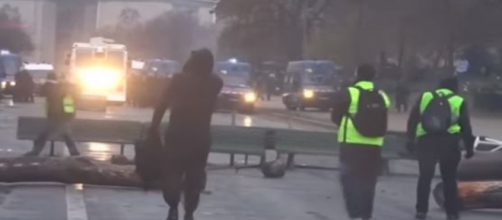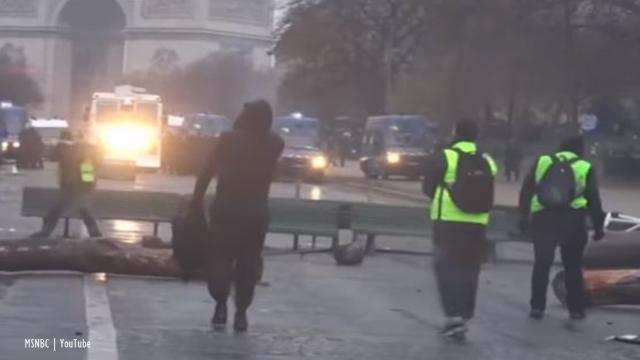France: A surge in fuel prices has caused violent clashes between anti-government activists and police officers in France, resulting in at least three deaths, 133 injuries, and over 400 arrests. French President Emanuel Macron called for an emergency meeting on Monday following a weekend of riots across Paris, the BBC reported.
As many as 8000 protesters known as the 'Gilets Jaunes' or the 'Yellow Vests' were engaged with 5,000 police officers wearing riot gear and wielding stun guns, tear gas and water cannons in the French capital. Vandalism has been rife with a famous statue of Marianne inside the Arc de Triomphe also smashed.
But despite this dystopian imagery, Macron's government have not yet declared a 'state of emergency' in the country. So why exactly is the French populace protesting?
French hike fuel prices
Approved in 2017, the French government introduced higher green taxes which raised the price of diesel by 7.6 cents per litre and petrol by 3.9 cents. This sharp hike in fuel prices was made in an effort to push people towards more environmentally friendly vehicles and thus slow down climate change.
But most people who live outside cities are heavily reliant on cars to get around. This has put an undue strain on the French people who believe that the government's policies can only cater to the privileged and the elite and not the needy.
Not alien to protests, Emanuel Macron faced severe criticism especially from the French working class who were hit the hardest. The majority of the protesters in Paris represent France's working class whose incomes are too high to avail full welfare benefits but too low to actually make ends meet. As more people grew disillusioned with the government's tax imposition, momentum gathered on social media where angry citizens vented their frustration with Macron.
Motorists in France, since 2008, have been required to keep these highly reflective yellow vests in their vehicles. This gave rise to the 'Gilets Jaunes' or the 'Yellow Vests' movement. A petition began to circulate on social media back in May 2018 to lower fuel prices and by mid-October, had 300,000 signatures.
The front-runners of this movement are the truckers who travel cross country for work. A large group of truckers created a Facebook event in October to block all roads to Paris on November 17. As many as 200,000 people were 'interested'.
Aims of the protesters
The grievances do not end here either. The protesters also demand answers as to why a higher cost of living is not necessarily yielding a higher standard of living. Some protesters just want the government to show a bit of leniency in fuel tax while some want Macron to resign. Some far-right groups are demanding the dissolving of the national assembly.
Macron, who was in Argentina this weekend for the G20 summit, addressed the nationwide riots at a press conference in Buenos Aires.
"I will never accept violence," he said. No cause justifies that authorities are attacked, that businesses are plundered, that passers-by or journalists are threatened or the Arc de Triomphe is defiled."
Whatever is the outcome of these protests, this movement will arguably determine Macron's legacy as the French President.



